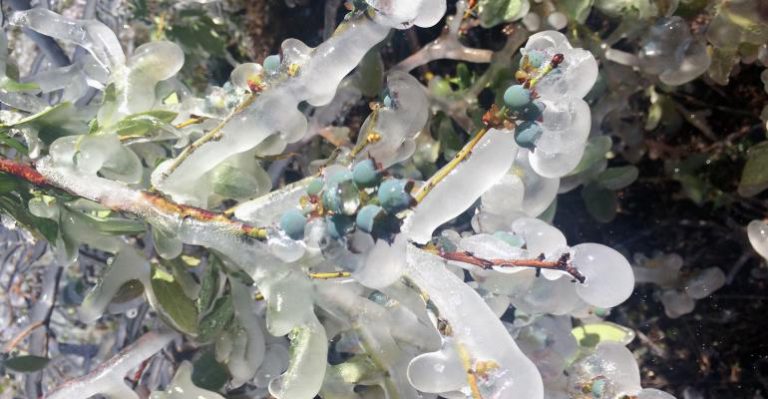By Clint Thompson
The aftermath of last spring’s freezing temperatures on Georgia’s blueberry crop was devastating. Crops were lost. Revenue that was counted on was never realized. Estimates were that more than 54 million pounds were lost as a result of the March 12-13 freeze event.

The crop loss affected more than just growers themselves. Chris Butts, executive vice president of the Georgia Fruit and Vegetable Growers Association, discussed the impact on the communities that support Georgia’s blueberry industry.
“It was a sizeable portion of the blueberry crop, especially the highbush crop. Anybody that was not irrigated lost a more substantial portion of their crop. Those took a real hit this year,” Butts said. “Those communities where the packing is done or somebody selling the materials or the packinghouse or the chemicals, when the volume of berries is cut in half, the volume of business for the people that support that industry is cut in half, too. I’m worried about the long-term impacts it has on those communities. You can’t take too many hits like that where half of your product doesn’t come through your processing line year after year.”
Butts estimated in mid-April that 50% to 55% of Georgia’s total yields were lost when temperatures dropped into the 20s on that fateful Sunday morning.
The freeze also impacted the state’s peach crop.
“I think with peaches their damage was mainly to their early varieties. The later varieties came on pretty strong. Hopefully, it helped make up for that difference. Any time you lose part of the crop it hurts. You hope the rest of your crop can help you make up for it,” Butts said. “It could have been a lot worse.”









